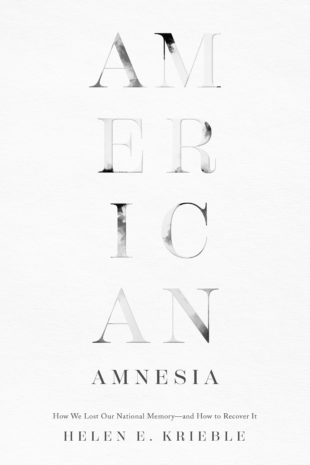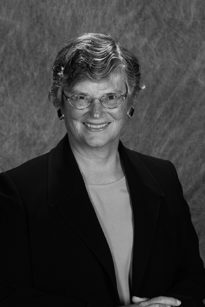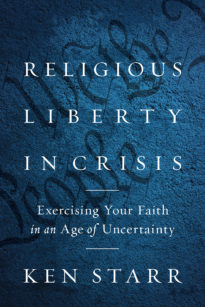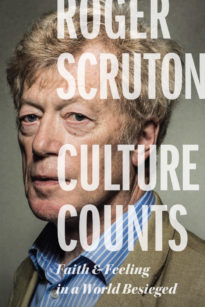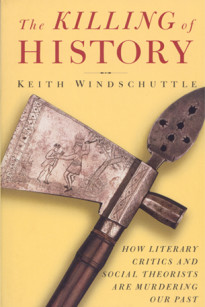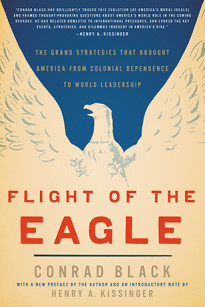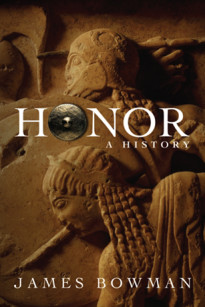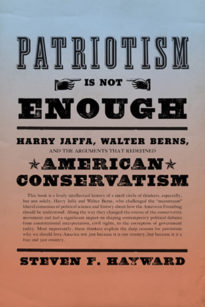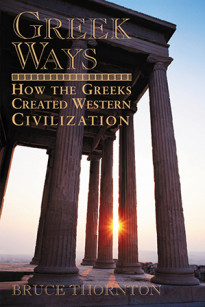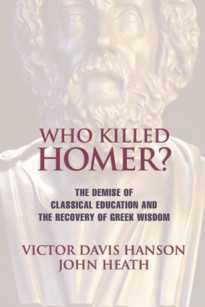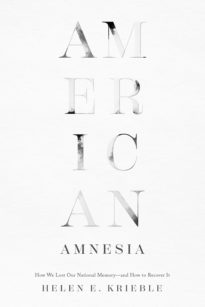Our memories quite literally make us who we are.
Memories create character. That process begins with our earliest childhood memories, and continues through the lessons of the classroom and far beyond. Our lives are made up of experiences with families, friends, businesses, and communities. In turn, those experiences mold our personalities, our quirks, our sense of humor, our foibles, our strengths and weaknesses. We learn from experiences our sense of right and wrong, our personal priorities, our work ethic, and even our political views.
Like most people, I sometimes forget where I laid something down, why I came into a room, or even where I parked the car. I empathize with the late Betty White, who once said she got lots of exercise because she had a two-story house and a bad memory.
Some say memory is a fleeting thing, like fame or glory. But it’s much more than that, because we are never content with the idea that memories come and go. We want to hold onto the things we know. We don’t want to study everything we need to know, each time we need to know it. We don’t have time to relearn everything that has accumulated in our brain. But memory is far more than merely recollecting information as needed.
The novelist Grant Allen famously wrote, “I have never let my schooling interfere with my education.” (The quote is often attributed incorrectly to Mark Twain.) That is a clever way of explaining that knowledge comes from experiences as much as from schools, and that education never stops, but continues throughout life. As we grow older, we grow wiser, and our perspective broadens because of the accumulation of memories.
Whether or not we are blessed with exceptionally good memories, though, we are who we are because of what we have been through, where we have come from, who we have learned from, and all the things that have happened to us.
The same is true not just for individuals, but also for families, communities, and nations. Our country, too, has its own unique character, also formed by its memories, its history, all the things it has been through, and what it has learned.
We know that when individuals lose their memory, they lose their character. The tragedy of Alzheimer’s, and dementia in all its forms, devastates millions of families as loved ones slowly fade away, unable to remember people, places, and events. They are still present physically, but clearly not the same people they once were. Their character is altered and utterly diminished.
What if a nation loses its memory? Its character is also altered and diminished. That is why people of various cultures throughout the world work so hard to maintain their identity, and to pass traditions along to future generations. In many Native American societies, each family chooses one person to continue the storytelling tradition, and to pass along languages, songs, customs, and tribal history. Oral traditions play an important part in community life. Similarly, in many West African tribes, a griot is so respected as the historian, storyteller, and genealogist that he becomes a key leader and an advisor to kings. This reflects the widespread understanding that good decisions require an understanding of history, in governments of all sizes and types.
When European explorers first encountered natives of the South Pacific islands during the seventeenth century, they were shocked by the varying levels of civilization on different islands. As science writer Matt Ridley explains, those islands were settled thousands of years ago by people originally from the same parts of the world, arriving in very similar canoes. But in the absence of written language, those early civilizations relied heavily on one generation passing knowledge along to the next. Some did, and some did not.
The result was that over time, some islands lost the knowledge of boat-building and sailing, while other islands continued trade and commerce, evolving to a much higher level of civilization by the time of European contact. That is why the European explorers found more advanced cultures in Samoa and Tahiti, and extremely primitive ones in Tasmania and Vanuatu.
Ridley argues that larger civilizations are more apt to pass along acquired knowledge, and smaller ones more likely to lose it, if for no other reason than larger civilizations have more people to worry about it, and more resources to spend on it. But what if a nation purposely decides it no longer wants to remember its history? What if a country imposes amnesia on itself? Could a civilization as large and advanced as the United States, the world’s most industrialized and modern superpower, lose its own understanding of the lessons learned from its own history?
Today’s educational journals are filled with reports on how poorly American students perform when tested on history, civics, government, and other social studies. Three-quarters of graduating seniors cannot demonstrate a proficient understanding of America’s founding principles, its constitutional system, the history of its institutions, or its governmental procedures. That does not mean the current generation of students is less intelligent than previous generations, as shown by their continued impressive achievements in other fields. Rather, it is the result of an educational system that has simply stopped teaching much of our history and civics.
That doesn’t matter just because we want our children to pass tests and get good grades. Nor is it just about wanting everybody to do their civic duty and vote in local, state, and national elections. It matters because in the United States’ sovereignty belongs to the people, not the government. “We the people” are the owners—the managing partners. We cannot manage responsibly what we do not understand, any more than someone could run a hamburger stand without knowing how to make a hamburger.
Americans’ understanding of their own history and government has been declining for years, as these subjects have become less important to the education establishment. But our citizens have acquiesced in that decline, and attach far less importance to history than previous generations did. In fact, much of today’s popular culture includes themes showing only the dark side of American culture and history, often portrayed as imperialistic, racist, and unfair. We now teach that America is just one of many cultures in the world, no better than any other, worse than some, and we are all citizens of the world. Such themes permeate the news media, Hollywood, the music industry, schools, and the Internet.
No wonder, after years of such messages, Americans are losing their appreciation for their unique system of government. Pollsters attest that fewer than half of Americans today believe their government system is better than others around the world. No wonder a 2012 presidential candidate’s use of the phrase “American exceptionalism” became a hotly debated point. Vast numbers of Americans no longer see their country as exceptional. Our self-imposed amnesia is taking hold.
America was founded as a great experiment in self-government, a laughing stock of all the monarchies and noble houses of Europe, who believed the new nation would inevitably fail because common people could never govern themselves. Abraham Lincoln understood the Civil War was not just about slavery or states’ rights, but about whether any government “so conceived and so dedicated can long endure.” We still struggle in a world of people who think democracy is doomed to failure.
America’s founding generation understood a fundamental truth: a democratic republic can only work if the people understand it. America only works if its people understand its history and the important ideals upon which it is built. They must know that e pluribus unum, our national motto, means our strength comes not from diversity, but from unity; from our commitment to a form of government based on the responsible individual and the right to life, liberty, and the pursuit of happiness. This is what makes our democracy unique in the world and our people one.
As we lose our national memory of these principles, and the sacrifices made over the past 250 years to preserve them, we are losing our national character. America cannot be preserved as “the last best hope of Earth” (as Lincoln memorably described the United States) if our own people no longer understand why that is true and are no longer willing to do what it takes to preserve it. The duties of citizenship are vitally important, but they are not complicated. It is our duty, as the owners, to defend our freedom against all threats, and to pass it along to future generations undiminished.
We are failing in that duty, but there is still time to cure our national amnesia. Hundreds of thousands of activists across the country are enlisting in the effort to rebuild our commitment to founding principles, to regain our memory, and recapture our exceptionalism. Our great national experiment in democracy must not be lost by our generation—not on our watch.
